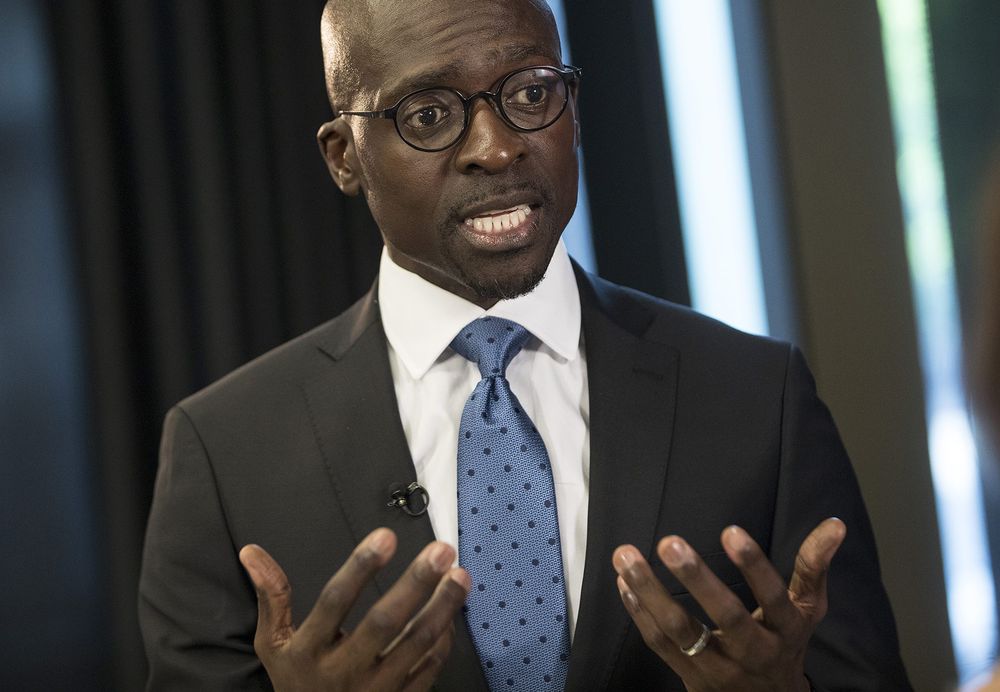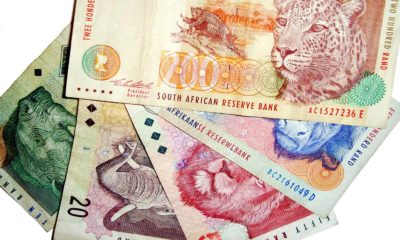- South Africa Signals Rising Debt as Ratings Downgrades Loom
South Africa forecast higher debt and wider fiscal deficits over the next three years, heightening the risk of further credit ratings downgrades as a fight for control of the ruling party limits policy choices. The nation’s currency and bonds weakened.
Finance Minister Malusi Gigaba painted a bleak picture of the state of the country’s finances in his first mid-term budget on Wednesday, with growth and revenue set to fall well short of projections made in February. He warned there was little scope to raise taxes or cut spending.
“It is not in the public interest, nor is it in the interests of government, to sugarcoat the state of our economy and the challenges we are facing,” Gigaba said in a written copy of a speech to lawmakers in Cape Town. “Improving our economic growth outlook over the period ahead remains our biggest challenge.”
The deteriorating debt trajectory threatens to trigger a downgrade of the country’s local-currency debt rating to junk by S&P Global Ratings and Moody’s Investors Service, which could spur massive capital outflows. S&P and Fitch Ratings Ltd. stripped South Africa of its investment-grade foreign-currency assessment in April, citing concerns about policy uncertainty and lackluster growth, just days after Gigaba replaced Pravin Gordhan as finance minister.
If the ratings companies “don’t do anything after today they are frozen behind the wheel,” George Herman, chief investment officer at Citadel Investment Services in Cape Town, said by phone. “The ratings downgrade is now all but guaranteed, it’s just a matter of them saving face and deciding when to do it.”
Zuzana Brixiova, lead sovereign analyst for South Africa at Moody’s Investors Service, was not immediately able to respond to an email requesting comment. Fitch Ratings Ltd.’s spokesman Peter Fitzpatrick didn’t immediately respond to an email and Gardner Rusike, sovereign analyst at S&P, didn’t respond to an email seeking comment.
The rand weakened 1.2 percent to 13.9142 against the dollar as of 3:50 p.m. in Johannesburg, after earlier slumping to the lowest value this year. The yield on benchmark government bonds due December 2026 jumped 22 basis points to 9.08 percent.
Efforts to put Africa’s most-industrialized economy back on track have been hamstrung as leaders of the ruling African National Congress wrangle over who will replace President Jacob Zuma as party leader in December. Zuma’s implication in a succession of scandals, including allegations that he allowed members of the wealthy Gupta family, who are in business with his son, to loot billions of rand from state companies have further dented investor confidence. Zuma and the Guptas deny wrongdoing.
Slow Growth
The Treasury expects the economy to expand 0.7 percent this year, down from 1.3 percent predicted in the February budget, and trimmed its growth forecasts for the next three years. Tax revenue for this fiscal year will fall 50.8 billion rand ($3.7 billion) short of the initial forecast.
Lower growth and revenue will feed through to a higher budget deficit. The gap is expected to jump to 4.3 percent of gross domestic product in the current fiscal year, up from a projected 3.1 percent.
The shortfall will probably stay at 3.9 percent of GDP for the next three years. That’s a break from the Treasury’s past pledges to steadily narrow the deficit.
“Fiscal consolidation plans seem to have been largely abandoned,” Jeffrey Schultz, an economist at BNP Paribas in Johannesburg, said by phone. “We believe that not enough was done to instill confidence that fiscal consolidation remains front of mind for the Treasury and as such I think ratings downgrades by S&P and Moody’s and Fitch are inevitable before the end of the year.”
Gross government debt is projected to mount to about 60 percent of GDP by 2021.
“Government is acutely aware of the dangers of unchecked debt accumulation,” Gigaba said. “Debt-service costs are the fastest-growing category of expenditure, crowding out social and economic spending. Our resolve is to remain on course and not to deviate from the fiscal consolidation agenda we embarked on a few years ago.”
Spending Priorities
Any new spending priorities will have to be redirected from other projects, he said.
The government intends dipping into its contingency reserves and selling part of its stake in telecommunications company Telkom Ltd. to help plug the budget gap and avoid a breach of its expenditure ceiling. Other steps to curb spending and bolster revenue will be announced in next year’s budget.
Meanwhile, a team of cabinet ministers reporting to the president has been set up to find ways to stabilize debt, narrow the deficit, stimulate growth and build investor confidence over the next few years. Measures under consideration include further asset sales and reducing state companies’ reliance on government debt guarantees.
“Hard choices are required to return the public finances to a sustainable position,” the Treasury said. “Unless decisive action is taken to chart a new course, the country could remain caught in a cycle of weak growth, mounting government debt, shrinking budgets and rising unemployment.”


 Forex3 weeks ago
Forex3 weeks ago
 Naira3 weeks ago
Naira3 weeks ago
 Billionaire Watch3 weeks ago
Billionaire Watch3 weeks ago



 Naira3 weeks ago
Naira3 weeks ago






 Naira2 weeks ago
Naira2 weeks ago




 Naira2 weeks ago
Naira2 weeks ago




 Naira4 weeks ago
Naira4 weeks ago






 Naira1 week ago
Naira1 week ago





















